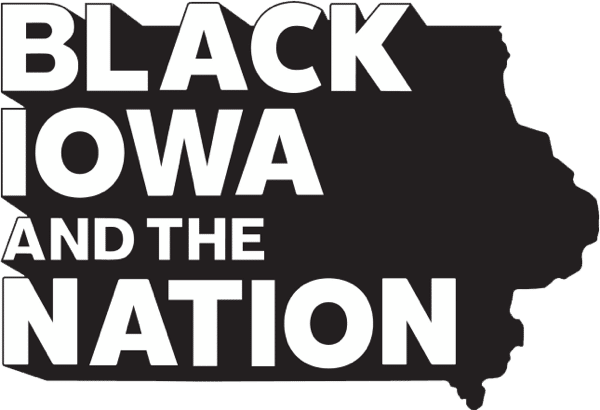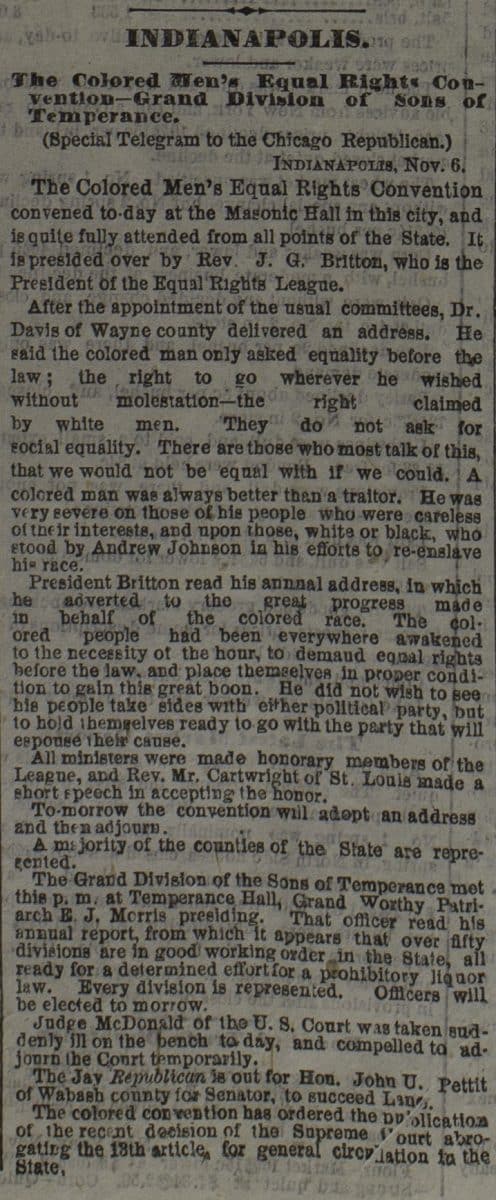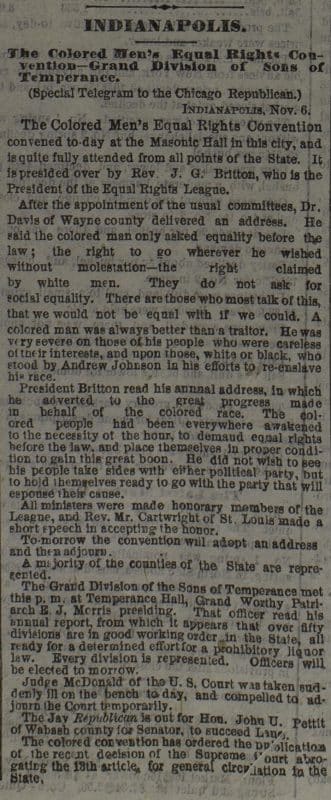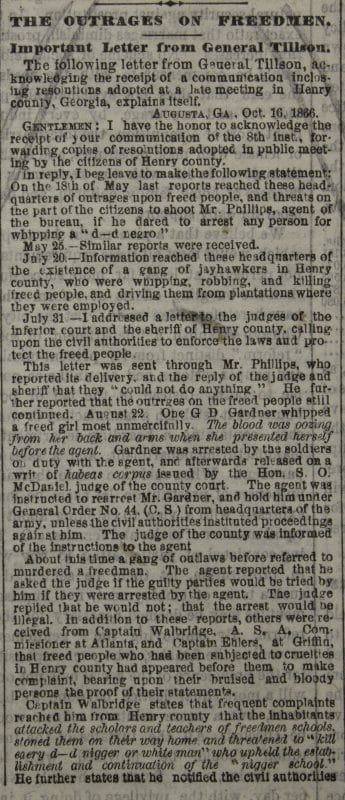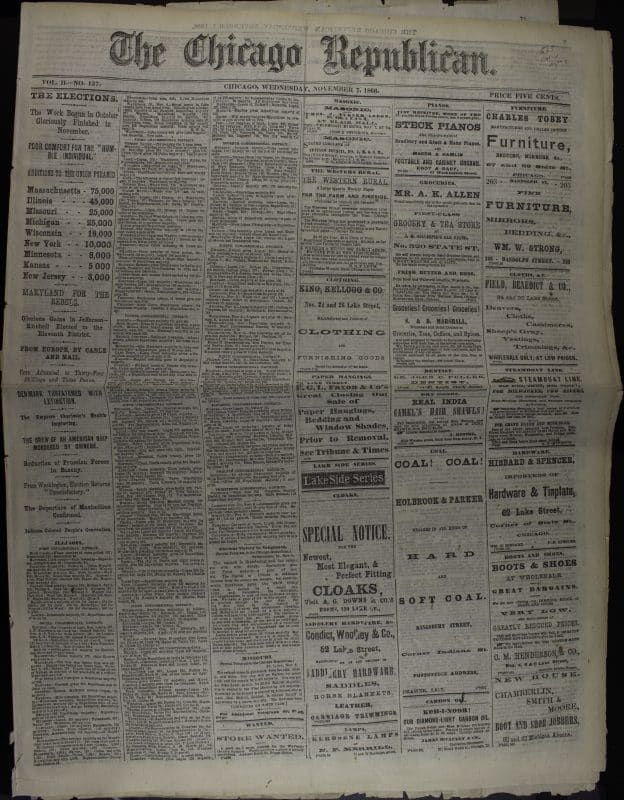The Chicago Republican, Chicago, IL, Wednesday, November 7, 1866
The Chicago Republican articles on Black citizens, including: p. 3 “The Outrages on Freedman;” p. 4 “Education of the Freedman;” and p. 5 “Indianapolis: The Colored Men’s Equal Rights Convention–Grand Division of Sons of Temperance.”
The article on “Indianapolis: The Colored Men’s Equal Rights Convention–Grand Division of Sons of Temperance” states, in part, that Dr. Davis said: “the colored man only asked equality before the law; the right to go wherever he wished without molestation–the right claimed by white men. They do not ask for social equality. There are those who most talk of this, that we would not be equal with if we could. A colored man was always better than a traitor.”
The article on “The Outrages on Freedman” discusses acts of violence perpetrated or stated against Black people, including “whipping, robbing and killing freed people”. General Tillson responded and sent a letter that stated, in part: “I addressed a letter to the judges of the inferior court and the sheriff of Henry county, calling upon the civil authorities to enforce the laws and protect the freed people”
In the article “Education of the Freedman” the opening paragraph states: “It is not the least remarkable of the signs of the times that the subject of the education of the negro is beginning to attract the attention of the people of the South, even in States where, a few years ago, the act of teaching a negro to read was punished as a felony by fine and imprisonment. Whether the change is due to true benevolence or mere jealousy of abolitionists, who have already proven that the negro deserves to be free remains to be seen.” The article continues: “A Teachers’ State convention, held at Houston, Texas, in July last, discussing this subject, came to the conclusion that it ‘is the duty of Southern teachers to enter upon this work at once.”
About Black conventions: from website “Colored Conventions Project:” “Starting in 1830 and continuing until well after the Civil War, free, freed and self-emancipated Blacks came together in state and national political conventions. They strategized about how they might achieve educational, labor, and legal justice during decades when Black rights were constricting nationally and locally as well as during the intervening postwar years, before the very promise of a democracy that included all citizens was once foreclosed again. The Colored Conventions movement took place during critical decades which witnessed devastating anti-Black race riots and the growing popularity of the American Colonization Society; the Fugitive Slave Law and the proliferation of derogatory representations of Blacks; the Civil War and Reconstruction; and the return of Black disenfranchisement in legal, labor, and educational spheres in the late nineteenth century. Speakers at conventions responded by calling for community-based action that gathered funds, established schools and literary societies, and urged the necessity of organizing in what would become a decades-long campaign for civil and human rights. The convention minutes collected here illustrate the immense struggles and the profound courage of those who made it a point to organize and stand for what was rightly theirs.
Most conventions were organized either as state or national meetings, though there were some regional meetings for New England and the southern states, for example.”
https://omeka.coloredconventions.org/national-conventionsces
The Chicago Republican (Chicago, Ill.) 1865-1872
